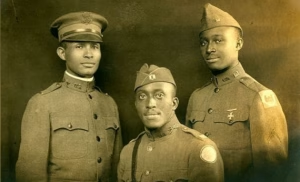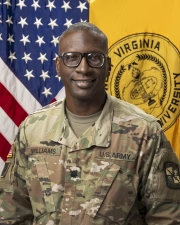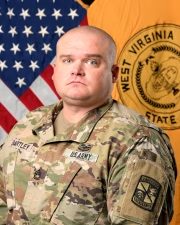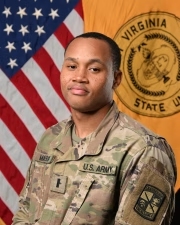Do you want to be a leader?
Are you curious about ROTC and what we offer? Then check us out by taking a military science class. There is no obligation to the military.
Earn academic credit and learn new things!
Military Science Curriculum
Taking ROTC means you take 3 classes (3-4 total credit hours) of Military Science classes per semester as part of your overall academic plan.We are not a major, we are […]
Military Science Learning Objectives
Military Science 100 Level Learning Objectives: The MS 100 Course produces a Cadet who understands the basic structure of the US Army and its’ customs and courtesies; accepts the Army as […]
WVSU Army ROTC Hall of Fame
The Yellow Jacket Battalion, a tradition of excellence! Fifteen general officers that have graduated from our program include those who have received the Congressional Medal of Honor—our nation’s highest recognition—and […]
WVSU ROTC History and Hall of Fame
A Brief History of West Virginia State University Army Reserve Officer Training Corps West Virginia State University (WVSU) has provided military training on campus almost the entirety of its existence. […]
Bill Kinsey
Enrollment Officer
Ferguson-Lincoln Bldg
(304) 766-3295
wkinsey@wvstateu.edu
Scholarship Opportunities
We’re looking for the best and brightest, those with good grades, athletic ability, and dedication. ROTC scholarships pay tuition and fees OR room and board ($12,000 annually), PLUS $1,200 a year for books.







